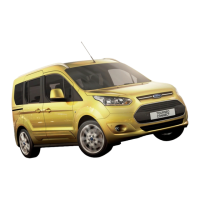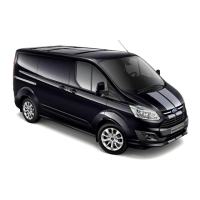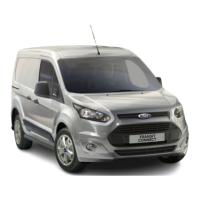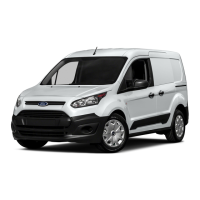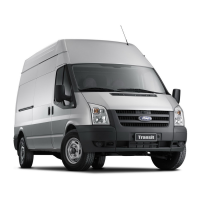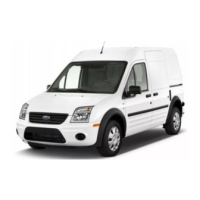The symbol can dier depending on
the version of the instrument cluster.
Service uids and e
quipment
All service fluids and consumables, e.g.
coolant, vehicle batteries and engine oils,
are being constantly developed. For this
reason, service fluids and consumables
should be replaced by a correspondingly
qualified workshop.
WARNING
Unsuitable service fluids and c
onsuma-
bles, and the incorrect use of these fluids
and consumables, can cause accidents,
serious injuries, burns or poisoning.
·
Store service fluids only in the closed
original container.
·
Never store service fluids in empty food
containers, bottles or any other non-
original containers as people finding
these containers could drink them.
·
Keep children away from all service flu-
ids and consumables.
·
Always observe and follow the infor-
mation and warnings on the service flu-
id packaging.
·
When using products that give o
harmful fumes, always work outdoors
or in a well-ventilated area.
·
Never use fuel, turpentine, engine oil,
nail varnish remover or other volatile
fluids for vehicle care. They are toxic
and highly flammable. They could
cause fires and explosions.
NOTICE
·
R
efill only appropriate service fluids. Do
not mix up the service fluids under any
circumstances. Failure to observe this
warning can result in serious malfunc-
tions and engine damage.
Leaking service fluids c
an pollute the
environment. Collect any service fluids
that escape or are spilled in suitable con-
tainers and dispose of them correctly and
with respect for the environment.
Windscreen washer uid
Fig. 196 In the engine c
ompartment: cap of
washer fluid reservoir
The windscreen washer fluid level should
be checked regularly and topped up as
necessary.
A filter can be found in the feed throat of
the washer fluid reservoir. The strainer
keeps larger dirt particles away from the
washer jets when refilling. The filter should
only be removed for cleaning. If the filter is
damaged or cannot be found when refilling,
dirt particles will reach the system and will
block the washer jets.
1. Open the bonnet
→ pa
ge 314.
The washer fluid reservoir is identified
by the
symbol on the cap → Fig. 1
96.
2. Check whether there is enough washer
fluid in the reservoir.
3. To add fluid, mix clear water, but not
distilled water, with suitable wind-
screen washer fluid →
. Observe the
dilution instruc
tions on the packaging.
4. At low outside temperatures, add
a special anti-freeze agent so that the
fluid cannot freeze →
.
WARNING
If coolant additive or similar unsuitable
a
dditives are mixed with the washer fluid,
this can result in an oily film on the win-
dow that considerably impairs visibility.
·
Use clean, clear water, but not distilled
water, with a suitable windscreen
washer fluid.
316
Checking and refilling

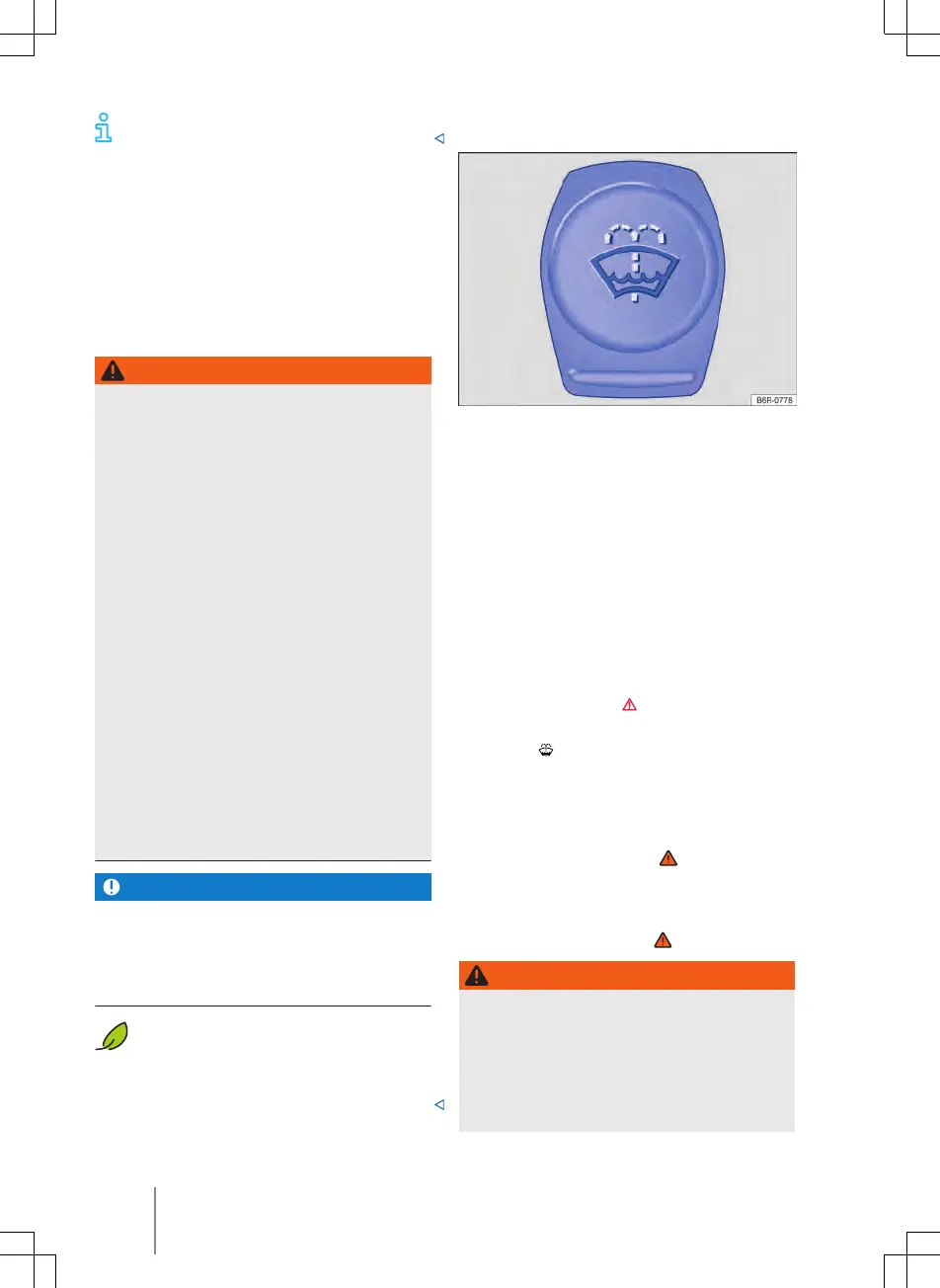